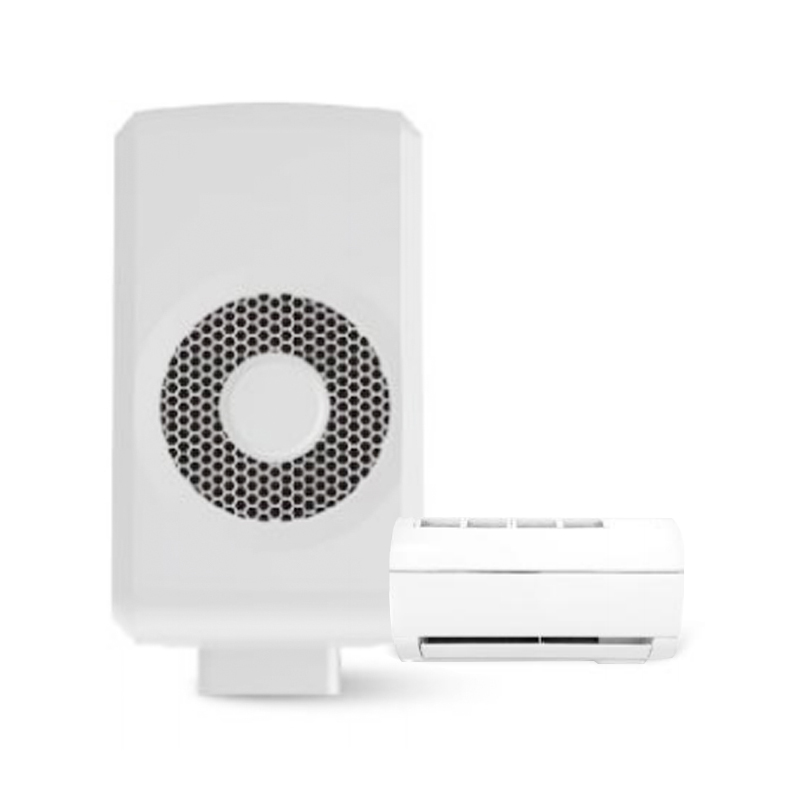Mini split air conditioner units have become increasingly popular for RV owners looking for a quiet, energy-efficient, and effective way to maintain a comfortable interior climate. However, while they offer several benefits, there are safety hazards associated with their installation and operation in an RV.

1. Electrical Hazards
Mini split systems are powered by electricity, and improper installation or wiring can electrical hazards. If the system is not installed correctly, it can cause electrical shorts, fires, or electric shock. Overloading the electrical circuit by using an undersized wire or failing to ground the unit properly can increase the risk of short circuits or even electrocution. It's important to hire a licensed electrician to handle installation and ensure the wiring is up to code.
2. Refrigerant Leaks
Mini split systems use refrigerants like R410A or R22 to cool the air. While these refrigerants are generally safe when handled correctly, leaks can pose safety risks. A leak in the refrigerant lines could the release of chemicals into the RV's air, which could be hazardous if inhaled. In addition, some refrigerants are flammable, and a leak near electrical components could a fire. Regular maintenance and inspections of the refrigerant system can prevent leaks and mitigate these risks.
3. Condensate Drain Issues
Mini split AC units typically feature a condensate drain to remove excess moisture from the air. In an RV, if the drain system becomes clogged or improperly installed, it can water damage inside the vehicle. Prolonged exposure to water can cause mold growth, which can affect air quality and cause respiratory issues. It's essential to regularly clean and maintain the drain system to prevent blockages and moisture buildup.
Mini split air conditioners with heating capabilities are a popular choice for RV owners who want to maintain a comfortable environment year-round. However, when investing in a mini split AC heater for an RV, it's crucial to understand how insurance and warranty policies apply to the unit, especially considering the specific needs of RVs and mobile living.
When installing a mini split AC heater in your RV, it's important to review your RV insurance policy to understand what is covered. Many RV insurance policies include coverage for appliances and installed systems, but this can vary by provider and policy type. Ensure that the installation of the mini split unit is covered under your current insurance, especially in the event of fire or electrical failure. If you are unsure, it's advisable to contact your insurance company to confirm whether the air conditioning system is part of the coverage.
It's also important to assess the impact of your mini split unit on your RV's overall value. In some cases, the addition of high-end equipment like an AC heater may increase the vehicle's replacement cost or affect your premiums. Some insurers may offer specialized coverage for mobile homes or RVs with additional appliances, so it's worth inquiring about those options as well.
A warranty is an essential consideration when purchasing any major appliance, including a mini split AC heater for your RV. Many mini split systems come with a manufacturer's warranty, which typically covers repairs or replacements for defects in materials or workmanship. These warranties usually range from one to five years, with longer periods often applying to the compressor or major components.
However, it's crucial to note that the warranty coverage can sometimes be voided if the unit is not installed or maintained according to the manufacturer's guidelines. For example, if the installation is done improperly, the warranty might not cover repairs related to installation issues. This is especially important for RVs, as mobile units are subject to different conditions, such as vibrations, which can affect the system's operation.
Some manufacturers also offer extended warranties, which provide additional coverage for several years beyond the standard warranty period. Extended warranties are beneficial, particularly for RV owners who travel frequently and rely on the unit for both cooling and heating in diverse climates.